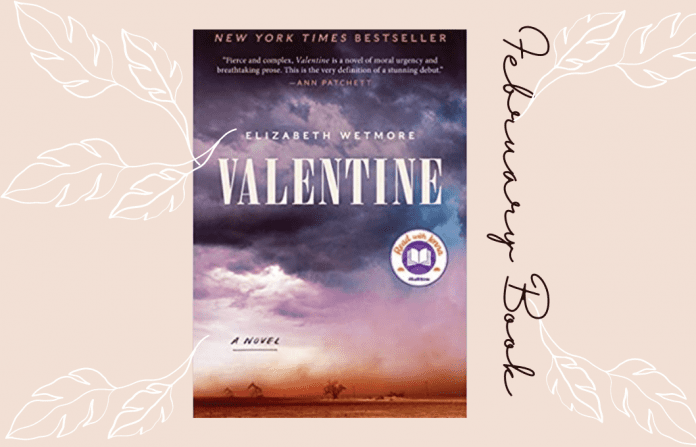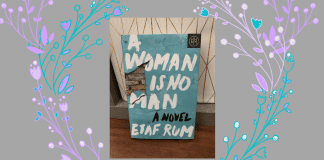When we hear the word “valentine,” we usually think of a holiday about love. It might evoke images of Cupid and pink cards; cute projects and parties during grade school; romantic dates and dozens of roses. No matter what memories or images the word evokes, we tend to think of love.
In this month’s book club pick, love is the last thing we take away from the book with this title.
Valentine by Elizabeth Wetmore is set in 1976 in Odessa, Texas. A fourteen year old girl named Gloria Ramirez appears, badly beaten and in pain, on the doorstep of Mary Rose Whitehead’s ranch house. The girl is barely alive and has been assaulted in a nearby oil field.
She brings her into the home but before long, her attacker approaches the home. Dale Strickland is a young man from a “good family” who is looking for Glory (as she calls herself after the attack). Mary Rose, heavily pregnant and alone with her daughter while her husband is away for work, hides her and fends off Dale with a rifle and courage she did not realize she possessed.
It would be nice if we could say that the story ended justly – that the attacker is caught and punished accordingly, that Glory could resume her teenage life, and that Mary felt safe in her town and home. But that is not the case.
Wetmore weaves a tale of racism, sexism, and morality set against the backdrop of a town that operates by the ups and downs of oil and men’s success.
We take the time and setting in this novel into account when thinking of how everyone is treated.
Glory makes appearances very rarely in the book outside of the beginning and the ending. Yet she is vilified in the town for the attack and the aftermath. Women and men in the town seem to gloss over her young age and makes comments like, “Mexican girls age quicker than other girls.” They claim that she was “asking for it” because she willingly got into Dale’s car, or that Dale is a “good boy” who just had to blow off some steam.
While it was hard to read these comments, it was typical of the thinking and rationalizing of people in a small town like this during the 1970s. Even today, sexual assault is one of the few crimes in which the victim is as much on trial as the aggressor. Book club member Dani commented, “I think in a town with that kind of mentality, the woman would have been at fault regardless. Race didn’t help in Glory’s case but in a “good ole boy” town, I think even a white girl would have been labeled.”
Mary Rose defends Glory both in her home and to the town. She is also persecuted for this by others, for many of the same reasons that Glory is persecuted. She questions whether herself about that day: was she protecting Glory? Would she have actually shot Dale to defend her? What was her real motivation that day?
More than this, the traumatic event causes Mary Rose to think about the world she lives and raises her daughter in. In a review by The Washington Post, Ron Charles states this:
In this small, racist city, the cost of standing up for a Mexican girl against a well-connected young man is hard. But what’s harder for Mary Rose to handle is the fear that Gloria’s attack awakens in her. She was never naive about the humiliation and condescension that young women endure, but now as a mother of her own little girl, she can’t shake the imminent possibility of retaliation. The dry air of Odessa, Tex., suddenly feels gritty with the spores of sexual violence. No amount of vigilance is sufficient, even if that anxiety pushes Mary Rose toward madness.
The overall feeling of the book is that of oppression, fear, and the overwhelming obligation of women to not rock the boat. In the time and setting in the book, we can look at all the actions and consequences and say that things are better. But deep down, we know that they are not. Life is not fair; injustice and racism are alive and well; bad things happen to good people; people are treated differently because of who they are and what they look like. It is up to us to change that as we reflect on the injustices in Valentine.
In conclusion, Valentine is about the opposite of love.
It is about a town and people who have conflicting ideas of love, justice, and morality. And I think this was Elizabeth Wetmore’s point in the title all along.











